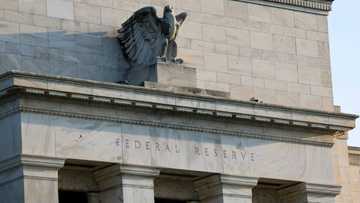How Will the Repo Rate Increase Impact Ordinary South Africans? How It Works and 4 Other Questions Answered
The South African Reserve Bank set alarm bells ringing across the country when it announced that the repo rate would be increased by 25 basis points on 27 January 2023.
PAY ATTENTION: Celebrate South African innovators, leaders and trailblazers with us! Click to check out Women of Wonder 2022 by Briefly News!
Understandably, ordinary South Africans are worried much how the rate hike will hurt their pockets and how they can come out at the other end of the increase with their finances intact.

Source: Getty Images
Briefly News reached out to independent economic analyst Professor Bonke Dumisa to get answers to the nation's most pressing questions.
What is the repo rate?
The repo rate refers to the repurchase rate. It is the interest that the South African Reserve Bank (SARB) charges on the money that it lends out to all commercial banks in South Africa.
PAY ATTENTION: Сheck out news that is picked exactly for YOU ➡️ click on “Recommended for you” and enjoy!
According to Prof Dumisa, when a bank like ABSA, for example, borrows money from the SARB, it gets it at a far lower interest rate than what ordinary South Africans get from banks.
Why is the rate increased?
Repo rate increases are not unique to South Africa. According to Forbes Advisor, all central banks worldwide routinely increase and decrease the repo rate to control the money supply in the banking system.
Prof Dumisa said this practice has some roots in consumer behaviour. The economic analyst explained how, historically, people would go to banks and borrow lots of money to buy goods and services on credit.
When consumers take out too much credit, it increases the amount of money in circulation, which in turn increases the demand for goods and services.
Dumisa said increased demand leads to an increase in the price of goods and services, leading to inflation.
So when the inflation rate in South Africa increases, the Central Bank will increase the repo rate to bring inflation to a reasonable amount.
The SARB essentially increases the repo rate to keep inflation in check by making getting a line of credit more expensive for companies and consumers.
How does the repo rate affect ordinary South Africans?
As explained earlier, increasing the repo rate makes getting credit more expensive. But how exactly does this work?
When SARB instituted the 25 basis point increase, it hiked the repo rate up to 7.25%. This is how much interest private banks must pay on the money it borrows from the Central Bank.
According to Trading Economics, the private banks add 3.5% on top of the 7.25% to create a Prime Overdraft Rate of 10.75%. This is the interest that banks charge ordinary South Africans on the money borrowed.
Commercial banks charge their customers more to cover the extra cost of borrowing from the SARB.
The increase in the repo rate is bad news for South Africans who are paying off debt on mortgages, loans, credit cards and store credit because the monthly payments on those debts will also increase, SowetanLIVE reported.
The cost of loans isn't the only thing that rises with the repo rate; the cost of living does too.
Professor Dumisa explained that businesses that have loans from banks offset the cost of an interest rate increase onto consumers by increasing the price of goods and services.
However, it isn't all bad news because the rate increase will benefit South Africans who are in the habit of saving and investing.
News24 reported that citizens with a more diversified investment portfolio might benefit from the higher interest rate on some of the assets they invested in.
Money stashed away in savings accounts will also generate more interest, meaning that the monthly return will increase while the repo rate is up, according to Standard Bank.
How can South Africans protect themselves from the adverse effects of the repo rate increase?
With all that has been said, one of the biggest questions remains: How can South Africans come out of the repo rate hike unscathed?
Professor Dumisa had a straightforward instruction for citizens: stay away from debt!
Dumisa said:
"The only way South Africans can protect themselves, even though so difficult, is by buying less on credit."
Though not much can be done for people who already have a line of credit out, consumers can spare themselves financial hardship by either saving up for what they want or avoiding spending altogether.
Dumisa also cautioned against taking fixed-interest loans, no matter how tempting they may be. A fixed internet loan is a loan where the interest stays the same even when the repo rate decreases.
Though these loans are beneficial when interest rates are soaring, consumers are often left with the short end of the stick when the repo rate decreases but the fixed interest rate stays the same.
When will the repo rate go down?
Though South Africans look forward to when the interest rates drop, citizens will have to strap in for a financially bumpy year.
There has been speculation that the repo rate will increase twice more in 2023. According to Nedbank's chief economist, Nicky Weimar, SA's green bank anticipates that SARB will institute at least two more 25 basis point rate hikes, BusinessTech reported.
Professor Dumisa thinks there will be more than two increases. The economic analyst speculated:
"I can tell you we will still have a repo rate hike in March. We'll still have a repo rate hike in May, and June. but then beyond that one, maybe we can start having certain times where [SARB will] say there's been no change."
R1K Capitec investment 20 years ago rewards investors with R2.3 million, leaving many kicking themselves
In another story, Briefly News reported that an investment of R1 000 in Capitec 20 years ago would be worth an incredible R2.3 million in 2023.
The Stellenbosch-based bank is one of the biggest success stories in the country and has rewarded its investors generously. Capitec has an impressive 18 million clients and a market value of almost R240 billion.
An analyst from Allan Gray said since listing on the Johannesburg Stock Exchange in 2002, Capitec has delivered a total shareholder return of 46% per annum. Capitec is the third largest JSE-listed bank.
PAY ATTENTION: Сheck out news that is picked exactly for YOU ➡️ click on “Recommended for you” and enjoy!
Source: Briefly News






